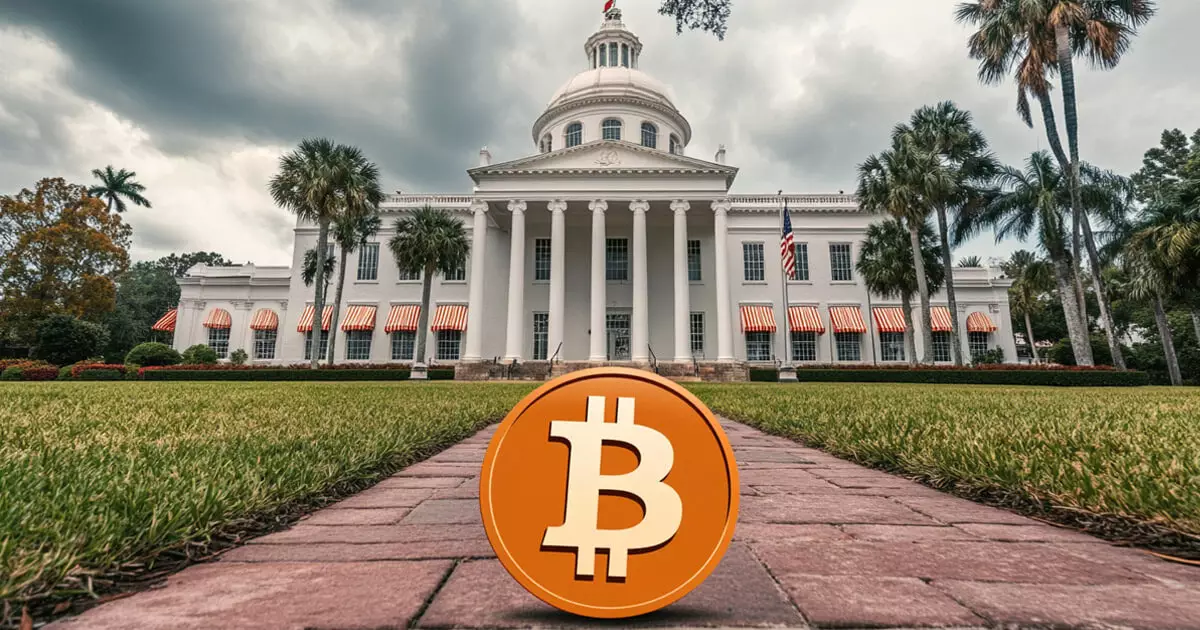Florida is stepping into the spotlight on the cryptocurrency stage, with Senator Joe Gruters championing a groundbreaking bill that could redefine state-level financial strategies through Bitcoin (BTC) integration. This initiative isn’t just about jumping on the latest financial bandwagon; it exemplifies a significant political and fiscal shift towards embracing modern assets in an era of economic uncertainty. This exploration of Florida’s unique positioning reveals striking implications, not just for the state, but for the nation at large.
A Legislative Milestone
The introduction of Bill S0550 marks a pivotal moment in state financial governance. Senator Gruters has indicated that this legislation will empower Florida’s Chief Financial Officer to invest up to 10% of assets from key financial reserves into Bitcoin. Such a move demonstrates a forward-thinking approach to economic management that emphasizes diversification and risk mitigation. But what does this really mean? It signifies a proactive stance against inflation and an effort to bolster fiscal autonomy. With traditional investment strategies often failing to keep pace with inflation, this leap into digital assets suggests a move towards innovation, reflecting a recognition that outdated financial systems need a contemporary overhaul.
Shifting Political Landscapes
Gruters has framed the Bitcoin initiative as part of a broader realignment within political discourse on digital assets. By referencing the former president’s strong endorsement of Bitcoin reserve strategies, he places Florida firmly at the nexus of a burgeoning economic paradigm. This isn’t just about finances; it’s about reshaping political identities. Florida, characterized as a “pro-freedom state,” seeks to attract those who prioritize economic liberty. This aligns with the center-right sentiment that promotes individual choice in financial matters, advocating for less government interference and more personal freedom.
Furthermore, as Bitcoin continues to gain acceptance among demographics that value autonomy and non-restriction, Florida is strategically capitalizing on this cultural shift. This mirrors a larger national trend towards questioning established financial practices, advocating for a system that resonates with the values of freedom-lovers and entrepreneurs alike. The state’s leadership role could inspire a wave of public policy adaptations across the country, prompting other states to reconsider their financial frameworks.
Cryptocurrency as a Tool for Economic Empowerment
Bitcoin’s allure is not solely based on potential financial returns; it encapsulates a philosophy of empowerment and autonomy. By allowing state investment in cryptocurrencies, Florida is signaling its commitment to providing an economic environment that caters to innovation. The framework set out in Gruters’ legislative vision may attract “economic refugees” – individuals and businesses fleeing high-tax, restrictive jurisdictions in search of a more favorable climate. This potential influx can invigorate the state’s economy by diversifying industries and maximizing growth opportunities.
Gruters also emphasizes the ripple effect of such bold policies. If Florida emerges as a national leader in Bitcoin integration, it could catalyze economic growth and competition while persuading other states to embrace a similar approach. In a time where legislative gridlock often characterizes governance, Florida’s actions may disrupt the status quo, presenting a template for effective economic progress.
Combatting Economic Volatility
One key aspect of Gruters’ vision revolves around combating economic volatility—a hallmark of traditional financial markets. While critics might argue that the cryptocurrency sphere can be subject to wild price swings, Gruters presents a compelling case for transparency and control. By actively engaging with Bitcoin and other digital assets, Florida can potentially stabilize its fiscal levers. This proactive approach could help mitigate risks and promote responsible investment, steering the state towards a balanced and forward-looking financial strategy.
Additionally, Gruters’ remarks about Florida’s resilience during the COVID-19 pandemic underscore the urgency of fiscal autonomy. As the world grapples with economic upheaval, fostering environments that enhance financial stability becomes paramount. Florida’s willingness to innovate and incorporate Bitcoin into its financial framework may position the state as a beacon of resilient economic strategy.
Florida’s ambitious Bitcoin initiative champions a compelling vision for the future of finance, and its success could serve as an influential model for other states. By integrating digital currencies into state reserves, Florida is not just adapting to change but catalyzing it—steering the conversation towards a more empowered and autonomous economic landscape. This is conservatism reimagined through innovation, shifting the balance of power back to the people.

